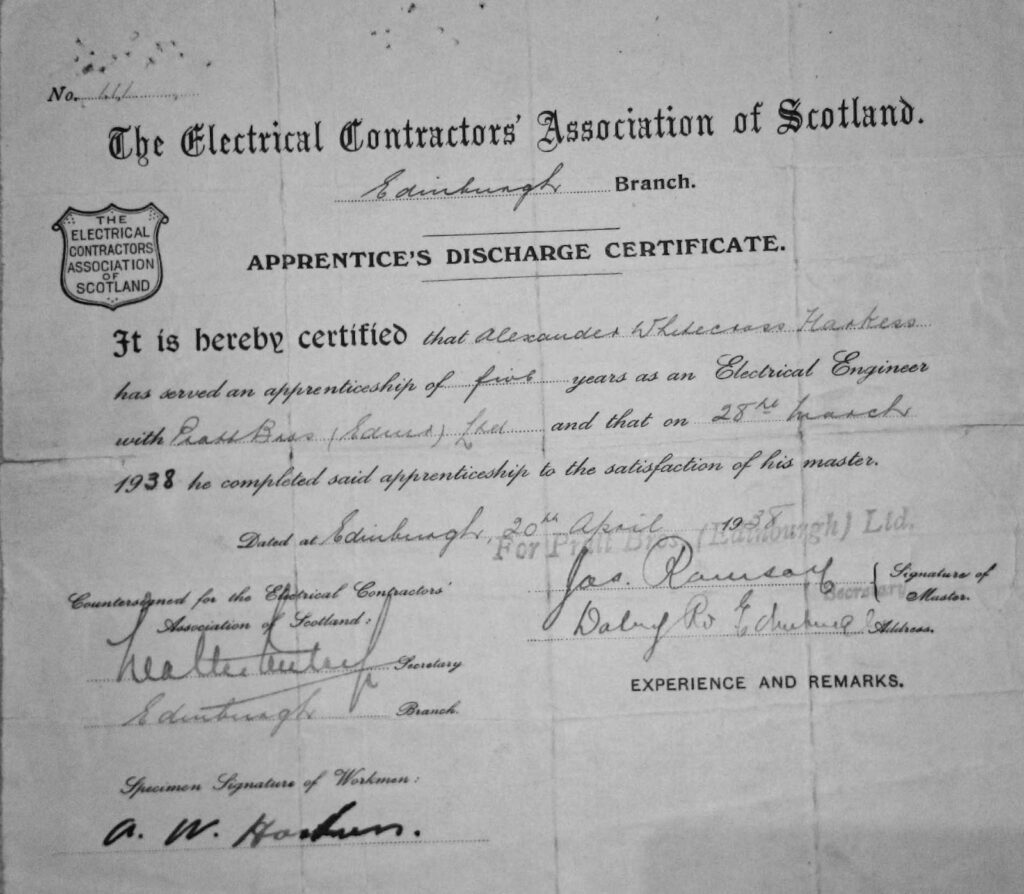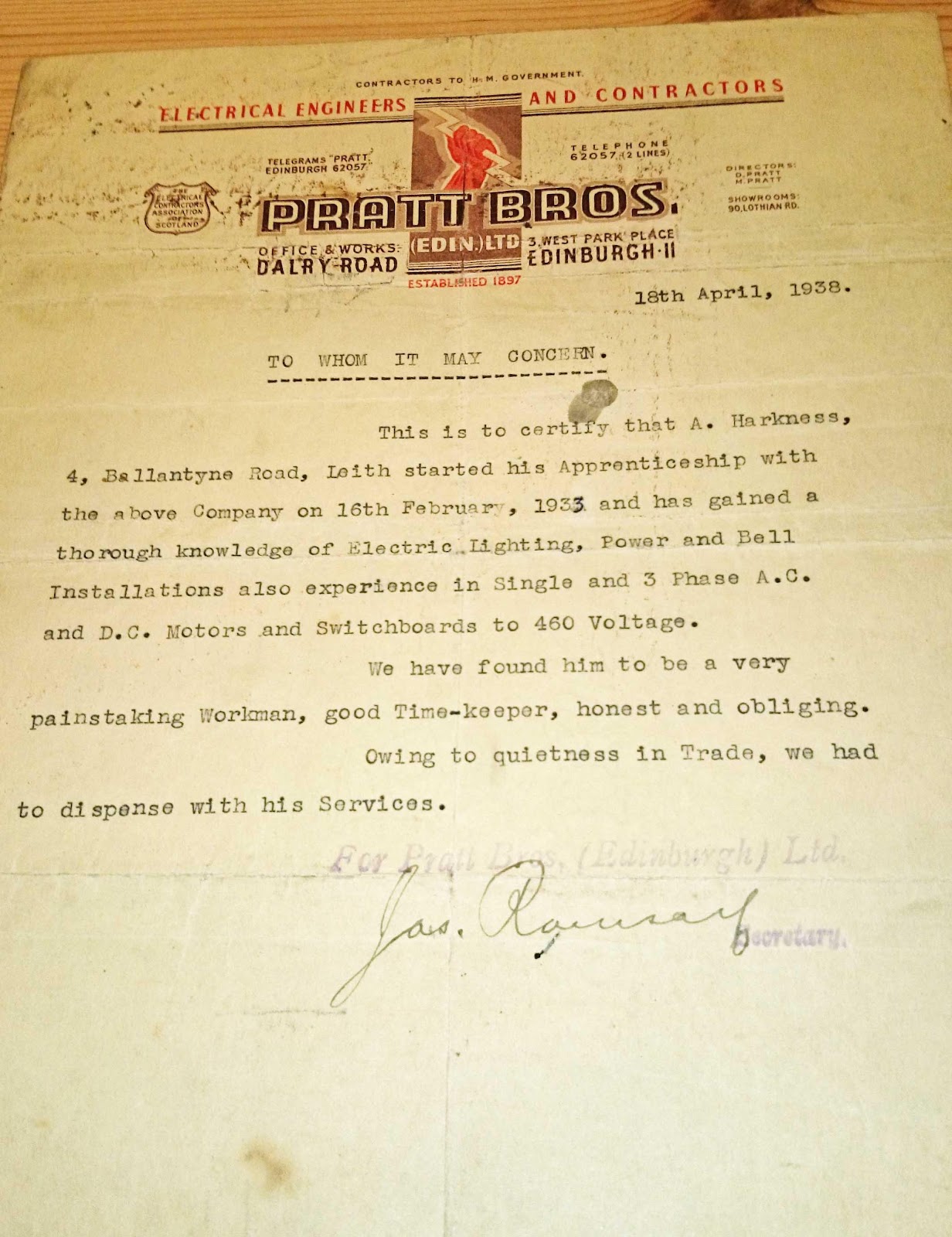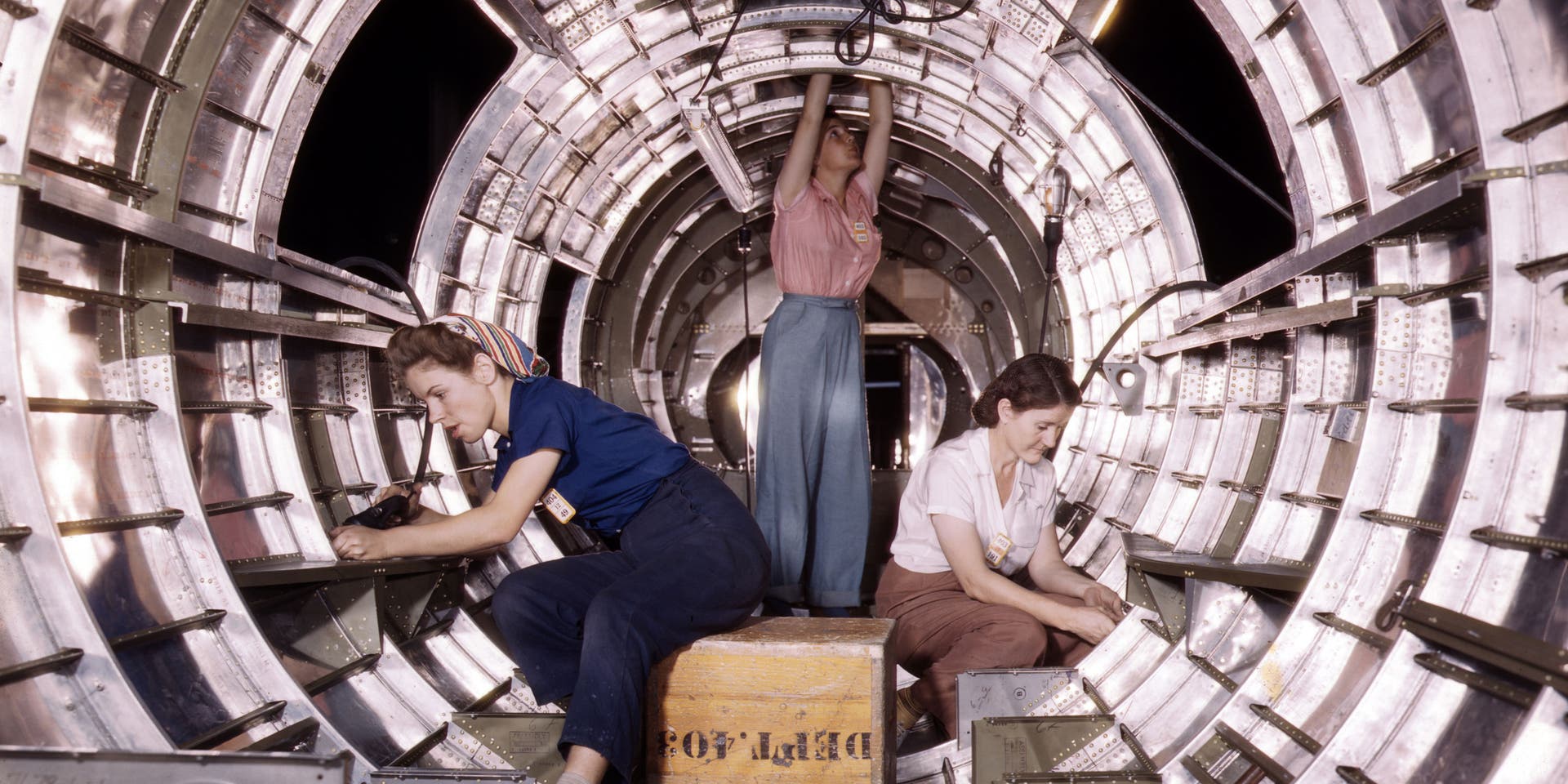Completed 20 April 1938
At the very least, my father was hard-working and determined to succeed in his endeavours. This completion of his apprenticeship at Pratt Brothers is proof of his character. In fact, this is how I recall him. He was a man of few words, at least when talking to his children. However, his actions may have spoken louder than his words. He had his frailties—one of which is his preponderance for Scotch whisky which resulted in behaviour that was not always appreciated by his family members (to put it mildly).
If he had lived in the 21st century, he wouldn’t have gotten off so lightly for all his ‘misdemeanours’. But all of this is now water under the bridge.
Carrying on a family ‘tradition’
Of course, I should have mentioned the fact that my father’s father, also, Alexander Whitecross Harkness, also worked for Pratt Brothers during the First World War (1913-1918).
To return to my point, he was a hardworking apprentice who completed a 5-year apprenticeship with Pratt Brothers. This was no mean feat. He lost his father when he was 12 years old, and his mother when he was 18 years old. So this is something that points to his strength of character.
If he finished his apprenticeship on 28 March 1938, he must have started his apprenticeship in 1933 at the age of seventeen; that was just one year before his mother, Georgina, died. Without a doubt, she was a driving force behind his professional career; he must have been motivated by his mother’s memory, as well as of his father’s (who died in 1928).
My Father’s Promotions

According to the testimonial, he has completed his apprenticeship as an ‘Electrical Engineer’. Of course, this is an exaggeration, to say the least. Without being an expert in the world of electrical and technological professions, there is obviously a difference between an ‘electrician’ and an ‘electrical engineer’.
As mentioned, my father’s father, also called Alexander Whitecross, was an electrician. My father, on the other hand, had greater ambitions. The great irony here, however, is that if he was a fully qualified electrical engineer, why would he spend the next twenty years or more gaining new qualifications? There seemed to be a never-ending struggle to gain certificates and work experience in order to be called a fully-fledged electrical engineer.
Of course, my father was only taking advantage of the vagueness of the language. This is a pattern we would see later on with some of his other work experiences — like being a captain of a ship, for example. This will be discussed in a later chapter, but I’ll briefly go through it here.
‘Captain’ can mean ‘the person in command of a ship’, but it is also a rank. The rank of captain is two or three ranks above that of lieutenant. My father was a sub-lieutenant. Ironically, because he was in charge of a degaussing boat, which he called a ship, he ‘logically’ assumed that he was the metaphorical ‘captain’ of the boat. As a result, he basically ‘promoted’ himself several grades above his actual rank.
So what remains is the difference between boats and ships. According to one website, a boat becomes a ship when it exceeds 100 feet in length;3 most likely, his degaussing vessels had those dimensions. Thus, using this definition, my father was the captain of a ship.
Ranks in Modern Professions
Of course, this is the same in many professions—the question of ‘rank’. This seems to be a family trait—glorifying one’s own status.
As mentioned, I am an associate professor, not a ‘full’ professor. Those outside the teaching profession would not really understand the difference between the two. For those inside the profession, this is very important in relation to status and salary. Absurdly, teachers in Italy are all called ‘professors’. However, in the English-speaking world, you can never obtain a professorship within the secondary school system; you can only do so in institutions of higher education. Thus, teachers in primary and secondary schools will never become more than ‘corporals’ and ‘sergeants’; they will never reach the ‘officer’ status, which is the professorship.
Of course, this is nothing new. For instance, calling someone who cleans public toilets a ‘Hygiene Manager’ is acceptable.
In other words, the destruction of workers’ skills is as old as the revolt of the Luddites.4 That is, the state and the capital owners hoodwink young people into gaining competencies (usually at their own expense); and when they finally complete their education, they would inform them that their skills are ‘outdated’.5 The point here is that skill redundancy is seen as something new in the 21st century, but this is not the case, as can be seen from my father’s professional career.
Ranks on the Isle of Eigg
My mother was very proud of her uncle and grandfather, who were the ‘captains’, or rather the ‘ferrymen’ on the Isle of Eigg. To an outsider, being a ‘ferryman’ may not seem like such a big deal. However, in the context of the islanders’ lives in the late nineteenth and early twentieth centuries, it was a very important job—providing a lifeline to the mainland. Thus, one can imagine that in my mother’s subconscious, she prized such seafaring men; that probably added to my father’s appeal during their courtship days.
Moreover, if we wander into the realms of fiction, her grandfather, Ruairidh Ruadh (‘Roderick the Red’), was said to have, according to family legend, Viking ancestors. This was perhaps also due to the fact that he was tall and well-built, with a large reddish beard. The Vikings, who had arrived in their longboats some thousand years before, had murdered the Irish Saint Donnan and his fifty monks.6 It is not impossible that Ruairidh Ruadh’s ancestors were murderous invaders!
3 https://www.boatingbasicsonline.com/when-does-a-boat-become-a-ship/
4 https://en.wikipedia.org/wiki/Luddite
5 https://www.cedefop.europa.eu/en/tools/skills-intelligence/skills-obsolescence?country=EU&year=2014
6 http://www.omniumsanctorumhiberniae.com/2013/04/saint-donnan-of-eigg-april-17.html



